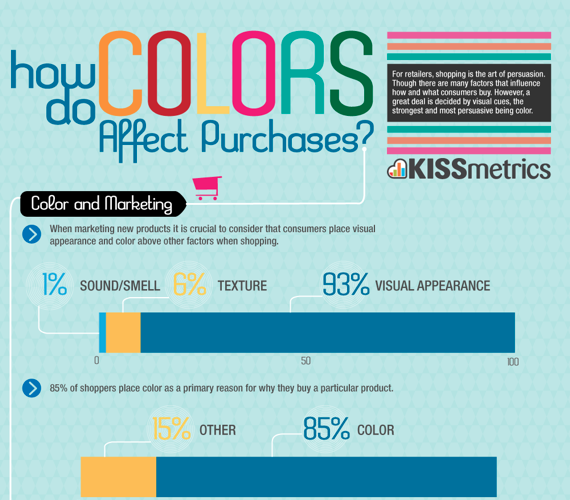Things I Learned This Week – #38
Offline this week I learned that even reorganizing a shared drive can be made entertaining, that looking after a 3 year-old single-handedly for a weekend involves pretty much every skill I possess, and that I should have moved my study downstairs a long time ago. Surround sound FTW! 😀
![]() http://delicious.com/dajbelshaw/TILTW38
http://delicious.com/dajbelshaw/TILTW38
Tech.
- This is an amazing presentation on ‘rethinking the mobile web’:
- I’m not sure how long BBC WebWise has been around, but it’s something I’ll be pointing my parents (and other less technically-proficient people) towards!
- Lifehacker has launched The Complete Android Guide. I’ll be pointing my wife – a recent HTC Desire adopter – towards it!
- This truly is the future of credit cards:
[youtube http://www.youtube.com/watch?v=0RPkODrcjkU&w=640&h=385]
- Want to make your Google Analytics-powered website stats publicly available? Here’s how!
Productivity & Inspiration
- Like dry-erase whiteboards for mindmapping, but hate smudgy pens that dry out? Try jumbo crayons!
- Are you constructively or destructively ‘wasting time’? Here’s a quick tip for checking at any given point:
Imagine your boss or a well-respected colleague were to walk by your desk and have immediate and full access to what you were doing and thinking. Would you change your behavior?
- Some great advice by Lifehacker to set up a workplace wiki. You don’t really need to ask permission, just start yourself, get others onboard and grow it from there. We’ve got a wiki at JISC infoNet that I’m not sure we’d cope without!
- At least half are obvious, but 17 Proven Lessons from Stephen King is nevertheless good advice!
- One week on, one week off to boost productivity? If only!
Education & Academic
- Stephen Downes is running a Moodle-based course called PLENK, or Personal Learning Environments, Network and Knowledge which is free to sign up for and looks valuable!
- I came across a post by Seth Godin from 2006 containing this nugget about when to speak to audiences:
Here’s my point: In our scan and skip world, in a world where technology makes it obvious that we can treat different people differently, how can we possibly justify teaching via a speech?
…
If you teach–teach anything–I think you need to start by acknowledging that there’s a need to sell your ideas emotionally. So you need to use whatever tools are available to you–an evocative powerpoint image, say, or a truly impassioned speech.
Then, and this is the hard part, if you’re teaching to a group of more than three people, you need to find a way to engage that is non-linear. Q&A doesn’t work for a large group, because only the questioner is engaged at any given moment…
If it’s worth teaching, it’s worth teaching well. If it’s worth investing the time of 30 or 230 or 3330 people, then it’s worth investing the effort to actually figure out how to get the message across.
- This is how to cite a YouTube video in your academic writing – which I did for the first time this week! 😀
- An interesting piece here by Joss Winn about the current model of Open Educational Resources using a misguided conception of ‘value’:
MIT’s OpenCourseWare initiative provides a good example of how Open Education, currently dominated by the OER commodity form, is contributing to the predictable course of the capitalist expansion of value. Through the use of technology, MIT has expanded its presence in the educational market by attracting private philanthropic funds to create a competitive advantage, which has yet to be surpassed by any other single institution.
…
In terms of generating material wealth for MIT, it is pretty much breaking even by attracting funds from private donors, but the value that MIT is generating out of its fixed capital of technology and workers should be understood as distinct from its financial accounts. Through the production of OERs on such a massive scale, MIT has released into circulation a significant amount of capital which enhances the value of its ‘brand’ (later I refer to this as ‘persona’) as educator and innovator. Furthermore, through the small but measurable intensification of staff labour time by the OCW initiative, additional value has been exorted from MIT’s staff, who remain essential to the value creating process but increasingly insignificant as individual contributors.
- Need to use less paper and ink in your classroom? Here’s three ideas!
Data, Design & Infographics
- An interesting infographic on the role of colour in shopping decisions (click for full version):
- Recorded Future is ‘a new predictive analysis tool that allows you to visualize the future, past or present.’ Explanatory video:
[youtube http://www.youtube.com/watch?v=Un8toBItXdo&w=640&h=385]
- Graph Your Inbox is a Google Chrome extension that allows you to visualize the contents of your inbox over time:
- Futurelab’s EventEye had its first outing recently. Similar to EducationEye, but focused on events like conferences, it’s something I’m looking forward to using!
[youtube http://www.youtube.com/watch?v=sEwqfOhnM2Q&w=640&h=385]
- If these wonderful examples of black and white photography from Smashing Magazine don’t make you want to rush out and take some pictures, nothing will! (I came across the potentially extremely useful vi.sualize.us along the way too!)
Misc.
- Shuffler is a way to surf music via channel via blogs distributed around the internet. Try it! 🙂
- Hack your trainers to be Wii controllers. Awesome.
[vimeo http://www.vimeo.com/12093541 w=649&h=487]
- Proof if there ever was that the Japanese are from another planet. NSFW but extremely funny!
- Ghetto swimming pool. LOL!
- This pretty much sums up my thoughts about Internet Explorer too…
Quotations
Things do not happen. Things are made to happen. (John F Kennedy)
A little nonsense now and then, is cherished by the wisest men. (Roald Dahl)
If you want to live a happy life, tie it to a goal, not to people or things. (Albert Einstein)
Don’t wait. The time will never be just right. (Napoleon Hill)
A battle is won by him who is firmly resolved to win it. (Leo Tolstoy)
(more quotations at my quotabl.es page)
Main image CC BY-SA Rick Harris




